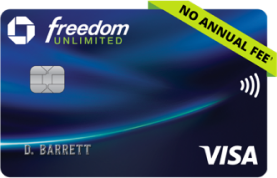![]()
![]()
![]()
![]()
Capital Bank Credit Cards Features And Approval Needs
Credit Card options are crucial for managing finances effectively, and Capital Bank’s offerings stand out in the competitive landscape.
This article will delve into the various features of Capital Bank Credit Cards, including the absence of annual fees, the opportunity to earn rewards points, and specific approval requirements.
Additionally, we will explore the age and checking account prerequisites, the associated fees, and unique policies related to secured cards.
Understanding these elements will help you make an informed decision when considering a Capital Bank Credit Card for your financial needs.
Capital Bank Cards at a Glance
Capital Bank offers a streamlined selection of credit card options that cater to everyday financial needs without overwhelming complexity.
These cards are ideal for individuals seeking convenience, security, and value, including those new to credit or looking to rebuild it.
With eligibility starting at 18 years old and requiring a Capital Bank checking account, access remains straightforward.
Some secured cards even bypass credit checks, making entry a bit more inclusive compared to traditional issuers.
The standout features of Capital Bank credit cards include no annual fees and an easy-to-earn reward structure through the uChoose Rewards program.
Whether you’re using a standard credit or signature-based transaction, rewards accrue naturally without needing to manage complex category spending.
Moreover, even if you haven’t activated your card, certain fees may still apply, making it crucial to review terms upfront.
For more details, visit the Capital Bank Credit & Debit Cards page.
- No annual fees across all card types
- Earning rewards on every eligible transaction
- EMV-chip technology for enhanced security
- No ATM fees when transacting at Capital Bank ATMs
How the Rewards System Works
Capital Bank credit cards reward cardholders by offering point earnings on every eligible purchase.
Cardholders typically earn at least 1 point per dollar spent, with many cards featuring bonus categories or promotional periods where spending earns 2x or even 5x points on select categories such as groceries, gas, or dining.
Always review your card’s promotional multiplier structure to maximize your rewards potential.
When it’s time to redeem, Capital Bank provides flexible options.
Points can be used for travel, statement credits, merchandise, or gift cards, depending on cardholder preferences.
Redemption values may vary depending on the method; in many cases, travel redemptions yield the best point value.
For instance, as noted by Capital One reward redemption insights, choosing cash back or PayPal may reduce point value.
To successfully use the Capital Bank rewards program:
- Earn points by using your credit card for everyday purchases, aiming to spend more in bonus categories
- Track your points through your online credit card dashboard or mobile app to monitor accumulation
- Redeem your points by browsing eligible options in your account and choosing the best value method, such as travel bookings or gift cards
Qualification and Eligibility
To qualify for a Capital Bank credit card, applicants must meet several financial and legal conditions.
Minimum age: 18 applies to all applications, as this is the legal threshold for entering into credit agreements.
However, if you are under 21, you may need to show proof of sufficient income, which aligns with the regulations outlined by the Capital One minimum age rule.
Applicants also need to be U.S. residents with a verifiable address that is not a P.O.
Box and must possess a valid Social Security number or ITIN.
An additional mandatory condition is holding an active Capital Bank checking account, which serves as an internal qualification checkpoint even before approval begins.
Income verification forms a critical part of application screening.
Although Capital Bank may not ask for official documents up front, applicants must provide accurate details regarding employment status and monthly income.
Discrepancies between income and spending obligations may affect the approval decision.
Credit checks may not be required for secured cards, making them accessible to those with limited or challenged credit histories.
This opens opportunities for applicants who want to rebuild credit or start from scratch.
Yet, for unsecured cards, a soft or hard pull on your credit report typically occurs, helping the bank review your past repayment behavior and credit utilization.
Overall, meeting these conditions helps ensure responsible lending and better customer onboarding.
Cost Structure and Potential Charges
Capital Bank credit cards are designed with a user-friendly fee structure that prioritizes transparency and affordability.
One of the most appealing features is the no annual fee policy, making these cards highly attractive for budget-conscious consumers.
Unlike many competitors that charge annual fees regardless of usage, Capital Bank allows cardholders to retain an account at no yearly cost, which maximizes long-term value.
This commitment to eliminating recurring yearly charges supports responsible credit use by removing one of the main financial hurdles customers face when choosing and keeping a credit card.
Even if the card remains inactive, the annual fee remains nonexistent—this is a relevant benefit for users seeking cost-efficient financial tools.
Still, cardholders must be mindful of other potential fees.
For example, a late payment can cost up to $39 if the minimum due is not received by the deadline as stated in the Capital One fee guide.
Cash advances and foreign transactions may also involve charges, similar to what’s outlined in Yahoo Finance’s list of common credit card fees.
It’s important to emphasize that certain fees can apply even if the credit card remains unactivated, a condition noted in Capital Bank’s own terms and conditions.
While the bank does offer rewards on eligible transactions through the uChoose Rewards program, understanding all potential charges allows cardholders to use the card responsibly and avoid unexpected costs.
| Fee Type | Amount / Condition |
|---|---|
| Annual Fee | None |
| Late Payment Fee | Up to $39 |
| Cash Advance Fee | Varies per transaction |
| Foreign Transaction Fee | Varies by network |
| Balance Transfer Fee | If applicable, varies by offer |
| Inactivity or Activation Fee | Fees may apply regardless of activation |
Secured Options and Credit Review Policies
Capital Bank offers both secured and unsecured credit card options geared toward individuals with varying credit profiles.
A secured card typically requires a refundable deposit and is ideal for those building or rebuilding credit.
These cards often come with no annual fees and can offer rewards on purchases.
Secured card applications may bypass a hard inquiry, making them accessible even to individuals with limited or poor credit history.
Some secured options from Capital Bank, such as those similar to the Platinum Secured Credit Card, assess approval based on income and existing debt, rather than credit score alone.
This gives applicants a fairer shot at approval when traditional checks might otherwise disqualify them.
Unsecured Capital Bank cards, on the other hand, do not require a deposit but usually demand a higher credit standing at the time of application.
These cards often provide enhanced reward structures and credit limits, but approval tends to require a credit check that can impact your credit score.
For applicants aiming to avoid excessive credit inquiries, secured options may provide a more suitable entry point into responsible credit use.
Over time, using a secured card strategically may help improve creditworthiness, potentially qualifying cardholders for unsecured options in the future.
This progression is part of Capital Bank’s broader strategy to support customers throughout their financial journey.
In conclusion, Capital Bank Credit Cards present an appealing blend of benefits and requirements.
By evaluating the features discussed, you can determine if these cards align with your financial goals and needs.






